Raspberry Companion Plants That Will Boost Your Yield
Raspberry Companion Plants That Will Boost Your Yield
Raspberries are a delicious and versatile fruit that can be enjoyed fresh, frozen, or cooked. They are also a relatively easy crop to grow, but there are a few things you can do to boost your yield. One of the best ways to do this is to plant companion plants.
Companion planting is the practice of planting different types of plants together in order to benefit each other. Some plants can help to attract beneficial insects, repel pests, or improve the soil quality. When you plant companion plants with raspberries, you can help to create a healthy and productive garden.
Here are some of the best companion plants for raspberries:
- Alliums: Alliums, such as garlic, onions, and chives, can help to repel pests such as Japanese beetles, aphids, and spider mites. They also have strong antibacterial and antifungal properties that can help to protect raspberries from disease.
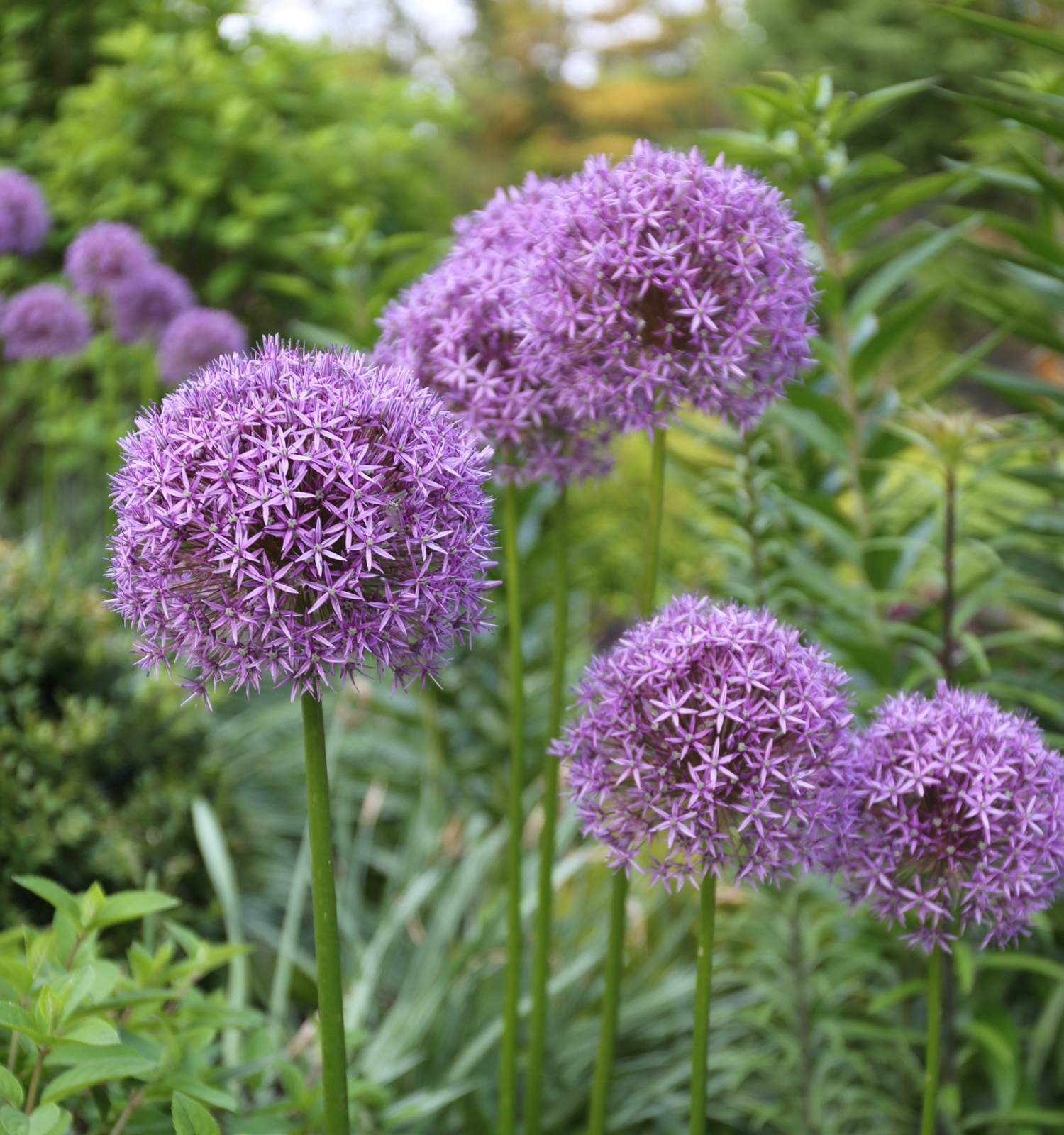
- Legumes: Legumes, such as peas, beans, and lentils, can help to improve the soil quality by fixing nitrogen. This is important for raspberries, as they are heavy feeders. Legumes can also help to suppress weeds and improve drainage.
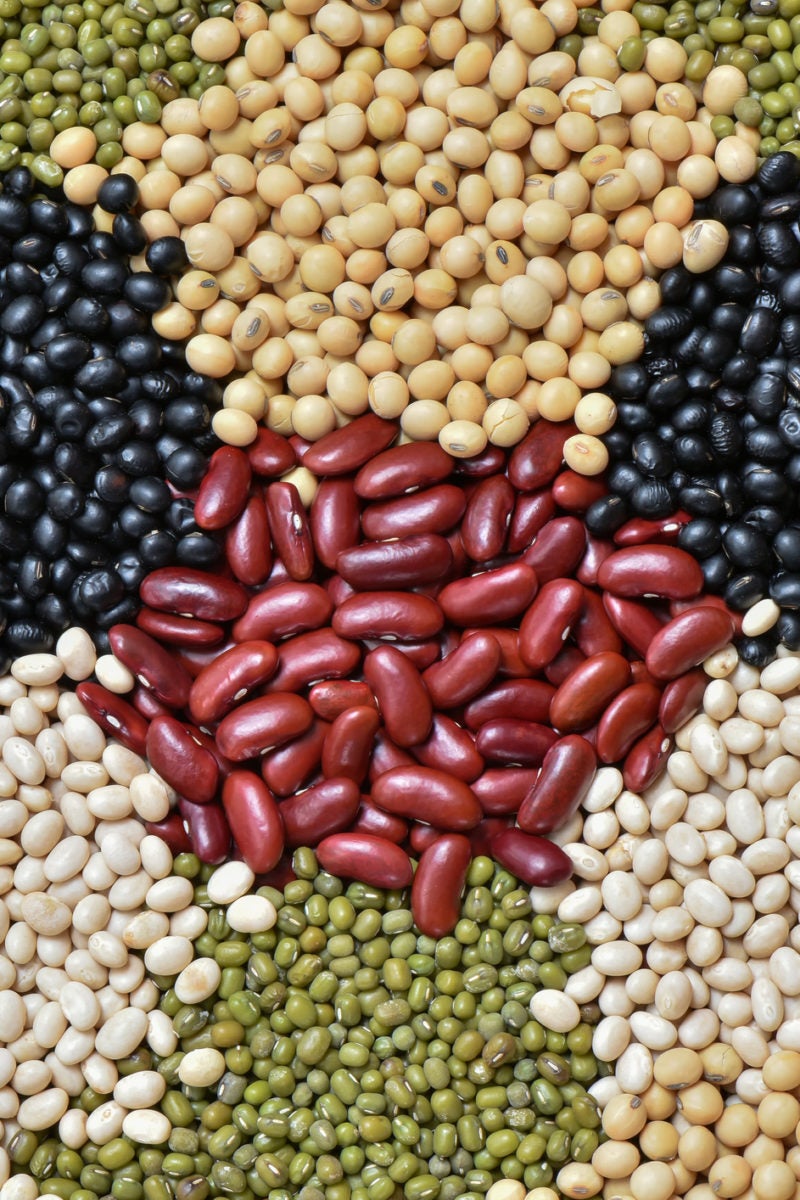
- Chamomile: Chamomile is a herb that can help to repel pests such as carrot flies and squash bugs. It also has anti-inflammatory and antibacterial properties that can help to protect raspberries from disease.
- Marigolds: Marigolds are another herb that can help to repel pests. They are especially effective against nematodes, which can be a problem for raspberries. Marigolds also attract beneficial insects, such as ladybugs and hoverflies, which can help to control pests.
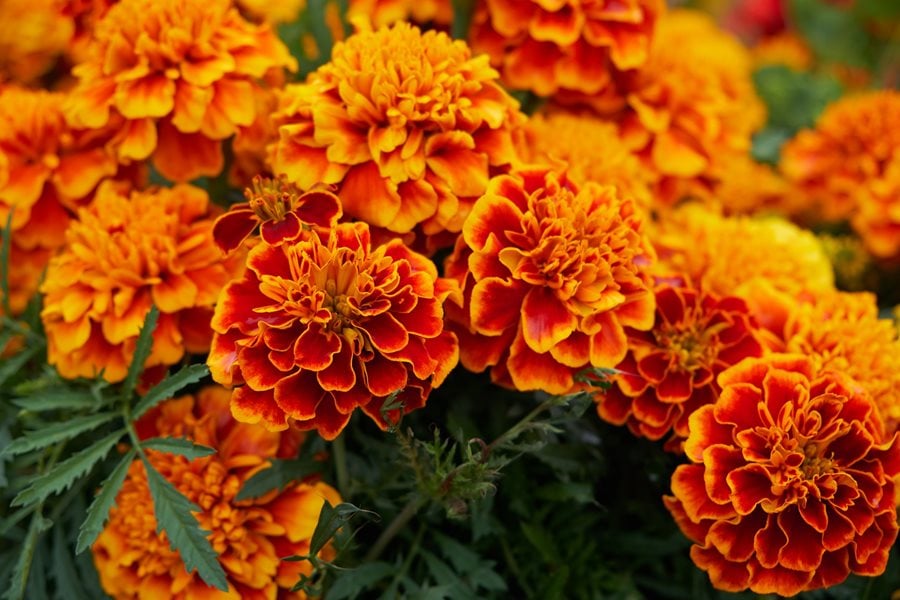
- Nasturtiums: Nasturtiums are a flowering plant that can help to attract beneficial insects, such as ladybugs and lacewings. They also have a strong scent that can help to repel pests such as aphids and whiteflies.
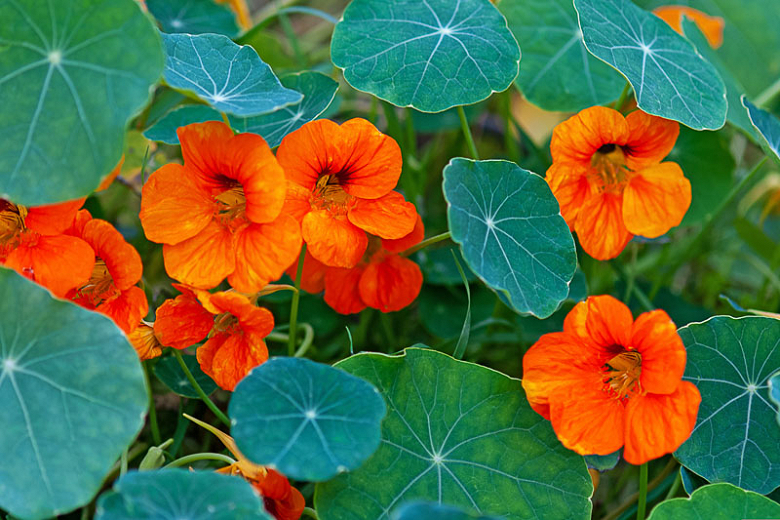
- Yarrow: Yarrow is a herb that can help to repel pests such as ants, Japanese beetles, and squash bugs. It also has anti-inflammatory and antibacterial properties that can help to protect raspberries from disease.

In addition to these plants, there are a few other plants that you should avoid planting near raspberries. These include potatoes, tomatoes, eggplants, and peppers. These plants are all susceptible to the same diseases as raspberries, so planting them together can increase the risk of disease.
By planting the right companion plants with your raspberries, you can help to boost your yield and improve the health of your plants. So next time you're planning your raspberry garden, be sure to consider these beneficial plants.
Raspberries are a delicious and versatile fruit that can be enjoyed in many ways. But did you know that there are certain plants that can help to improve the health and productivity of your raspberry plants? These are known as companion plants, and they can offer a variety of benefits, such as attracting beneficial insects, repelling pests, and improving the soil.
Some of the best companion plants for raspberries include:
- Alliums: These plants, such as garlic, onions, and chives, have a strong scent that can help to repel pests.
- Chamomile: This herb helps to attract beneficial insects and improve the soil.
- Comfrey: This plant is a nitrogen fixer, which means it can help to improve the nitrogen levels in the soil.
- Legumes: These plants, such as beans, peas, and lentils, also help to fix nitrogen in the soil.
- Marigolds: These flowers help to repel pests and attract beneficial insects.
- Nasturtiums: These flowers also help to repel pests and attract beneficial insects.
If you are interested in learning more about raspberry companion plants, I recommend visiting Gardenia Inspiration. This website has a wealth of information on the topic, including a list of the best companion plants for raspberries, as well as tips on how to plant and care for them.
FAQ of raspberry companion plants
Question 1: What are some good companion plants for raspberries?
Answer: Some good companion plants for raspberries include:
- Legumes: Legumes, such as peas, beans, and lentils, are nitrogen-fixing plants, which means they can help to improve the nitrogen content of the soil around your raspberry plants.
- Alliums: Alliums, such as garlic, onions, and chives, have strong scents that can help to deter pests from your raspberry plants.
- Herbs: Herbs, such as mint, chamomile, and lavender, can help to attract beneficial insects to your raspberry plants, which can help to pollinate the flowers and control pests.
- Flowers: Flowers, such as marigolds, nasturtiums, and sunflowers, can help to attract pollinators to your raspberry plants, which can help to increase the yield of fruit.
- Cover crops: Cover crops, such as buckwheat, oats, and clover, can help to improve the soil quality around your raspberry plants and suppress weeds.
Question 2: What plants should I avoid planting near raspberries?
Answer: Some plants that you should avoid planting near raspberries include:
- Nightshades: Nightshades, such as tomatoes, potatoes, and eggplants, can be susceptible to the same diseases as raspberries, so it is best to avoid planting them near each other.
- Fennel: Fennel can compete with raspberries for water and nutrients.
- Strawberries: Strawberries can attract the same pests as raspberries, so it is best to avoid planting them near each other.
Question 3: How do companion plants benefit raspberries?
Answer: Companion plants can benefit raspberries in a number of ways, including:
- Improving the soil quality: Companion plants can help to improve the soil quality around raspberry plants by adding nutrients, improving drainage, and suppressing weeds.
- Attracting pollinators: Companion plants can attract pollinators to raspberry plants, which can help to increase the yield of fruit.
- Deterring pests: Companion plants can have strong scents that can deter pests from raspberry plants.
- Providing shade: Companion plants can provide shade for raspberry plants, which can help to protect them from the hot sun.
Question 4: When should I plant companion plants with raspberries?
Answer: You can plant companion plants with raspberries at the same time as you plant the raspberry plants, or you can plant them in the spring or fall after the raspberry plants are established.
Question 5: How far apart should I plant companion plants with raspberries?
Answer: The distance you plant companion plants with raspberries will depend on the size of the plants. For example, you will need to plant larger plants, such as sunflowers, further apart than smaller plants, such as marigolds.
Image of raspberry companion plants
5 different images of raspberry companion plants from Pinterest:
- Chives: Chives are a great companion plant for raspberries because they help to repel pests, such as Japanese beetles. They also add a delicious flavor to raspberries when they are cooked together.
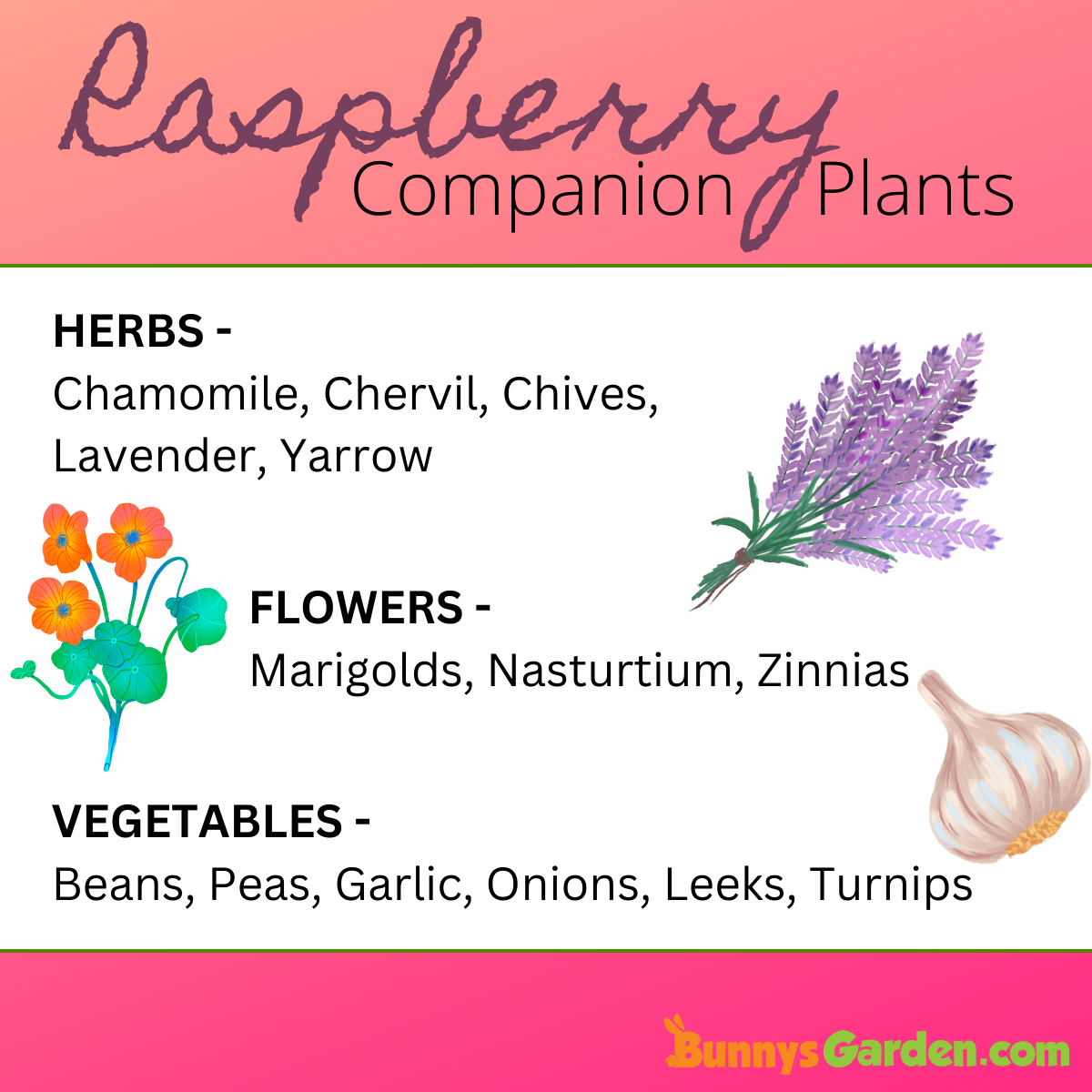
- Garlic: Garlic is another great companion plant for raspberries. It helps to repel pests and diseases, and it also improves the flavor of raspberries.

- Onions: Onions are similar to garlic in that they help to repel pests and diseases. They also add a delicious flavor to raspberries when they are cooked together.

- Marigolds: Marigolds are not only beautiful flowers, but they are also great companion plants for raspberries. They help to attract beneficial insects, such as ladybugs, which prey on pests that damage raspberries.
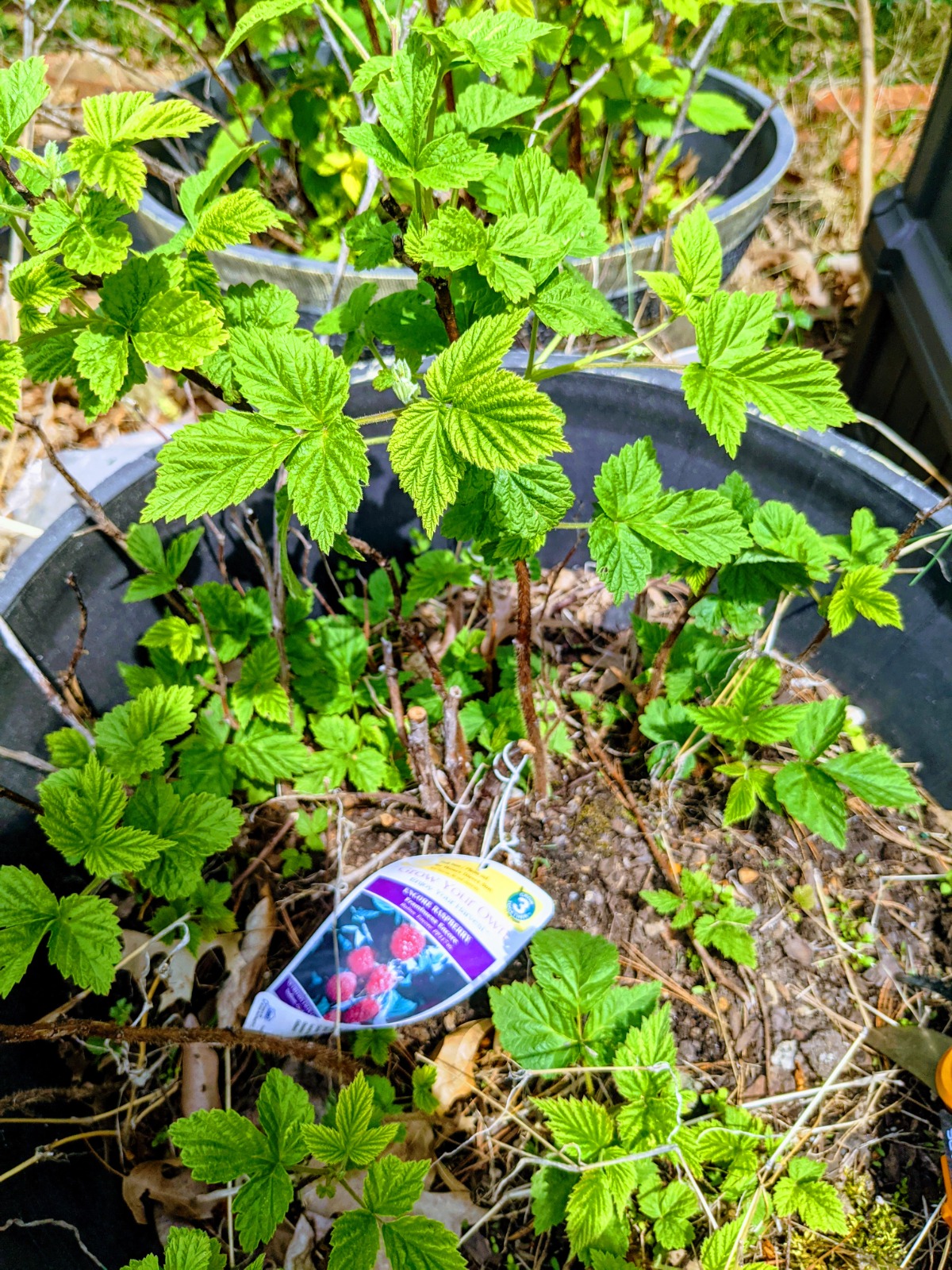
- Nasturtiums: Nasturtiums are another great companion plant for raspberries. They help to attract beneficial insects, such as ladybugs, and they also deter pests, such as aphids.

Post a Comment for " Raspberry Companion Plants That Will Boost Your Yield"